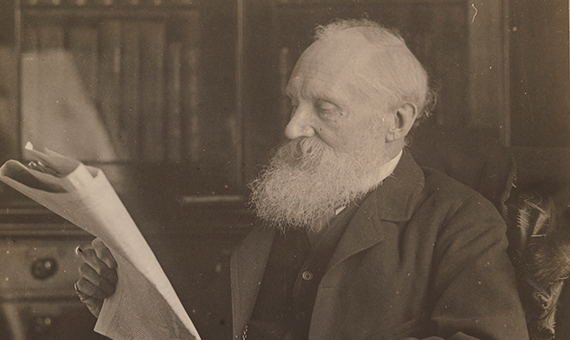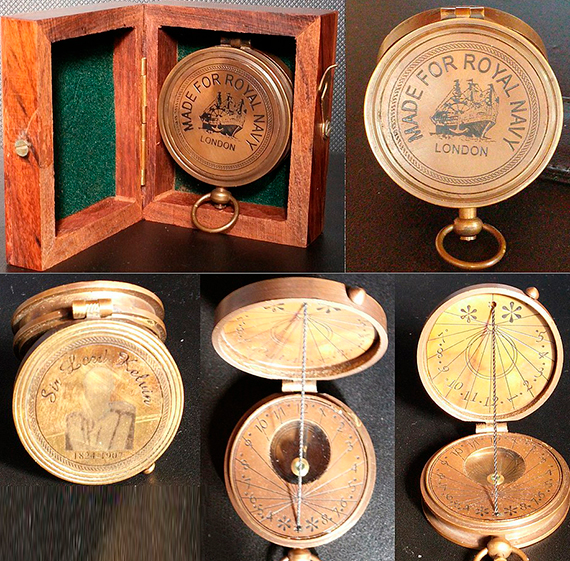Danish physicist Niels Bohr is often quoted as having said: “It’s very difficult to make predictions, especially about the future.” However, the website Quote Investigator discovered that this is a phrase with many parents and whose origins are much earlier, but hopelessly obscure. The anecdote serves to illustrate a reality: as well as making predictions about the future, it can also be very difficult to make retrospections, especially about the past. It often occurs that in this historical exercise words are attributed to concrete figures who never uttered them. Take, for example, the case of the Northern Irish physicist and mathematician William Thomson, better known as Lord Kelvin, whom no trial will absolve of having declared in 1900 the death of physics… even though he never actually did so.

According to the version that usually goes around, and in light of the great advances that physics made in the late nineteenth century, in 1900 Kelvin (26 June 1824 – 17 December 1907) addressed the British Association for the Advancement of Science with these words: “There is nothing new to be discovered in physics now. All that remains is more and more precise measurement.”
Physicist, inventor and engineer
The physicist is thus accused of having very severe scientific myopia, because that same year, at the turn of the century, the German physicist Max Planck described his famous postulate according to which electromagnetic energy cannot take any value, but is always issued in multiples of an elementary unit, or quantum. The idea was so incongruous for the physics of that time that Planck himself thought of the principle as a kind of mathematical device with no correspondence with reality.
Five years later, however, Albert Einstein would apply Planck’s postulate to the energy of photons in his explanation of the photoelectric effect, granting to quantization an authentic seal of approval that would spur, more than a revolution, the foundation of a whole new physics: that of the quantum. Thus, Kelvin is often criticised for an immense error in scientific vision, but he never really committed it.

Kelvin’s scientific trajectory does not appear to be that of someone prone to commit errors of judgment of such magnitude. His preferential place in the Olympus of science is assured by his numerous contributions. Today his name is particularly known for being the eponym of the unit of temperature in the International System, a denomination that honours his accurate calculation of absolute zero around -273.15 degrees Celsius. But his contributions were essential in shaping thermodynamics, advancing the mathematical formulation of electricity and paving the way to understanding the relationship between matter and energy. His work as an inventor and engineer led him to improve navigation compasses and, above all, he gained fame and fortune thanks to his work in telegraphy and his efforts to advance the transatlantic cable project, which earned him his aristocratic title and his entry into the House of Lords.
An error he never made
The false attribution of the quote about the end of physics probably stems from a lecture given by Kelvin at the Royal Institution on 27 April 1900, in which, under the title Nineteenth-Century Clouds Over the Dynamical Theory of Heat and Light he did just the opposite: he defined two “clouds” that still obscured the sky of physics, and that would eventually be resolved into revolutionary theories: special relativity and quantum mechanics. Thus, Kelvin must be absolved of an error made by other colleagues of his. Six years earlier, Albert Michelson —whose famous experiment with Edward Morley refuted the existence of the luminiferous ether— said at the inauguration of the Ryerson Physics Laboratory at the University of Chicago that the great principles had already been discovered, and that physics would henceforth be limited to finding truths in the sixth decimal place.
But although it is fair to exempt Kelvin from a mistake that does not belong to him, this does not mean that his predictions were always inspired. Because as extraordinary as having declared the end of physics, was his blunder in 1902 when he said the following in a press interview about the future of aeronautics: “Neither the balloon, nor the aeroplane, nor the gliding machine will be a practical success”. It turns out that it really is hard to make predictions, especially about the future, as Bohr never said either.
Javier Yanes
Comments on this publication